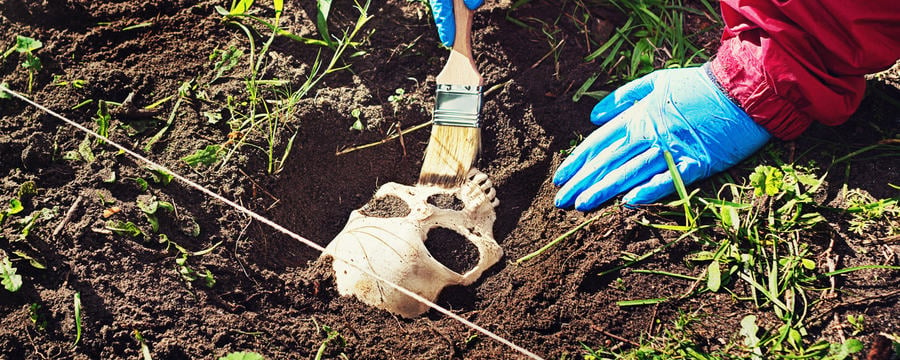Home / History / Archaeology / Forensic Archaeology and Anthropology / What is Humanitarian Forensic Action?

Reach your personal and professional goals
Unlock access to hundreds of expert online courses and degrees from top universities and educators to gain accredited qualifications and professional CV-building certificates.
Join over 18 million learners to launch, switch or build upon your career, all at your own pace, across a wide range of topic areas.


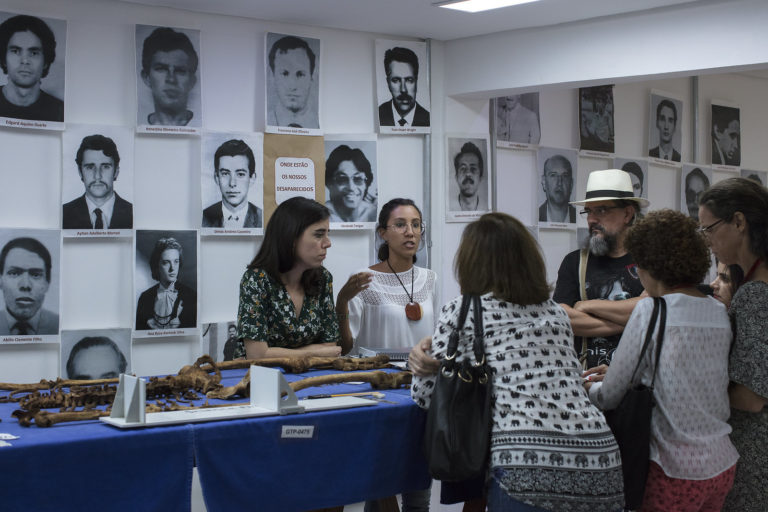 Sao Paolo, Vila Mariana, forensic anthropological and archeological center of the federal university. Relatives of missing persons talk with scientific committee members from the Perus working group (Photographer Marizilda Cruppe, Copyright ICRC).
Sao Paolo, Vila Mariana, forensic anthropological and archeological center of the federal university. Relatives of missing persons talk with scientific committee members from the Perus working group (Photographer Marizilda Cruppe, Copyright ICRC).
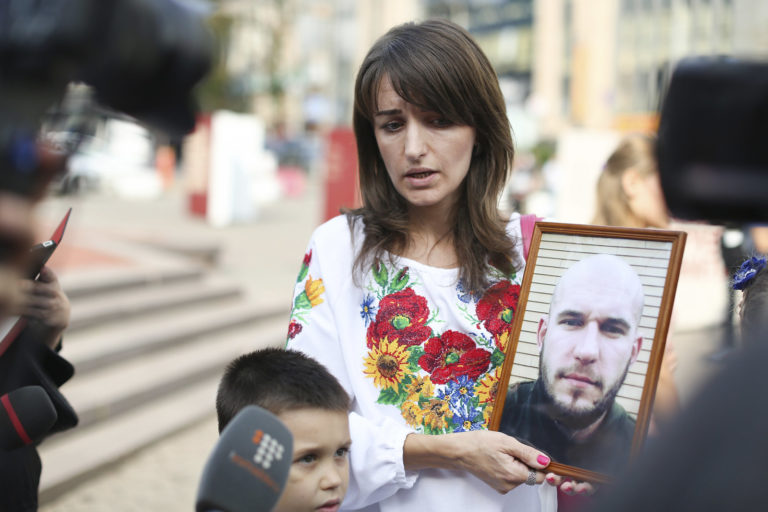 Kiev. The ICRC opens a photography exhibition entitled “Uncertainty” on families of missing persons. A relative of a missing person is giving an interview. (Photographer Oleg Gerasymenko, Copyright ICRC).
Kiev. The ICRC opens a photography exhibition entitled “Uncertainty” on families of missing persons. A relative of a missing person is giving an interview. (Photographer Oleg Gerasymenko, Copyright ICRC).
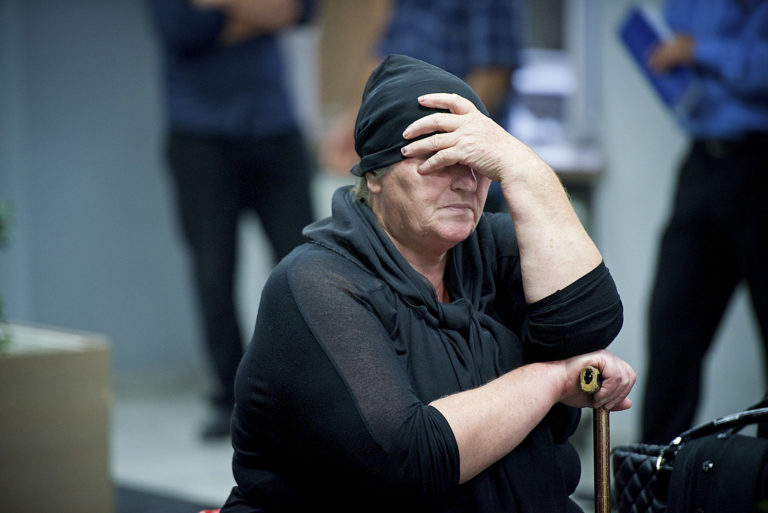 Tbilisi, Levan Samkharauli National Forensics Bureau. 17 sets of human remains of persons unaccounted for in relation to the 1992-1993 armed conflict in Abkhazia are handed over to their families. Official ceremony at the Brotherhood Cemetery. (Photographer Aleksander Imedashvili, Copyright ICRC)
Tbilisi, Levan Samkharauli National Forensics Bureau. 17 sets of human remains of persons unaccounted for in relation to the 1992-1993 armed conflict in Abkhazia are handed over to their families. Official ceremony at the Brotherhood Cemetery. (Photographer Aleksander Imedashvili, Copyright ICRC)
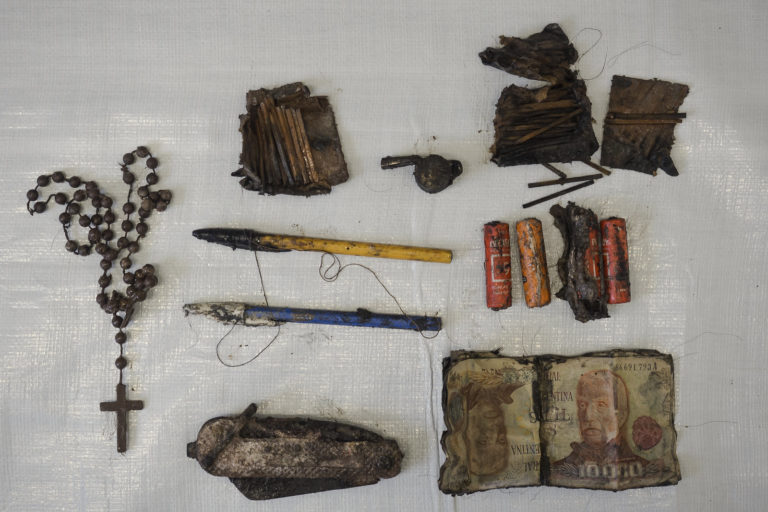 Near Darwin, Argentine military cemetery. During the examination of the bodies, the forensic experts search for any individualizing personal belonging that could help identify the mortal remains (Photographer Didier Revol, Copyright ICRC).
Near Darwin, Argentine military cemetery. During the examination of the bodies, the forensic experts search for any individualizing personal belonging that could help identify the mortal remains (Photographer Didier Revol, Copyright ICRC).
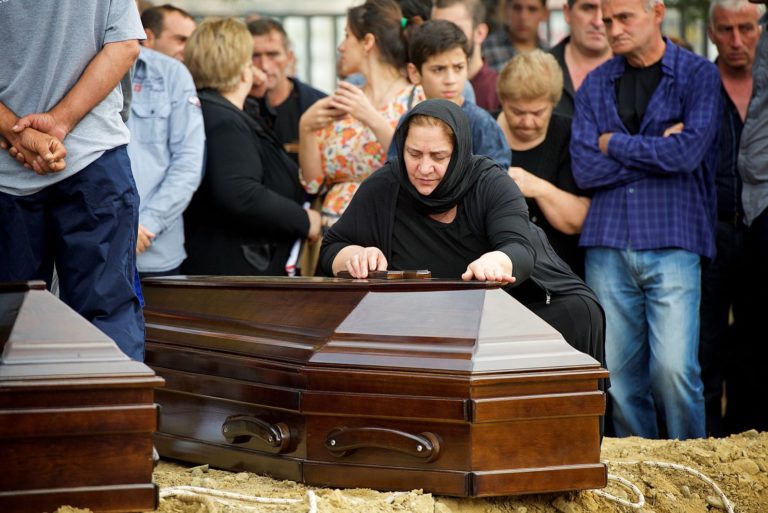 Tbilisi. 17 sets of human remains of persons unaccounted for in relation to the 1992-1993 armed conflict in Abkhazia are handed over to their families. Official ceremony at the Brotherhood Cemetery. (Photographer Aleksander Imedashvili, Copyright ICRC).
Tbilisi. 17 sets of human remains of persons unaccounted for in relation to the 1992-1993 armed conflict in Abkhazia are handed over to their families. Official ceremony at the Brotherhood Cemetery. (Photographer Aleksander Imedashvili, Copyright ICRC).
